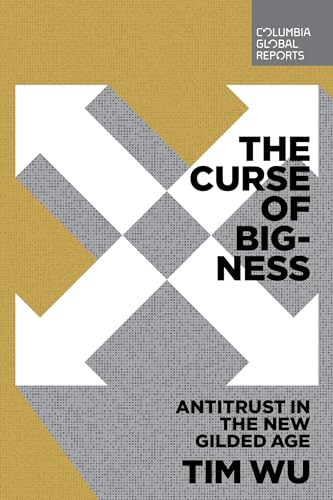August was a busy news month.
The most impactful story for all of our lives is that the federal government won its landmark case against Google, with a district court declaring the company a monopoly. We don’t know yet what the court will order Google to do, nor how Google plans to fight the ruling in coming years. Still, this case may change everything about our tech landscape in the coming decades.

The federal government also has ongoing anti-competitive lawsuits pending against mega-tech companies Apple, Amazon, and Meta (the parent of Facebook, Instagram and WhatsApp). These cases potentially build on one another. The Google ruling depended for precedent on a Microsoft ruling from 2000. The government’s win against Google strengthens its cases against Apple, Amazon, and Meta.
Implications
I believe this will be very good for markets in the long run, in the sense that successful capitalism requires innovation, which may itself require forcibly busting up giant companies every once in a while. It could be bad for US stock market investors in the short run, with its extraordinary top-heavy reliance on a few monopolistic tech giants.
My beliefs are based on past reading on the regulation of monopolies and technology innovation, which provides historical context.
The Microsoft precedent
The previous tech bubble of 1999/2000 was kicked off by the IPO for Netscape and the subsequent “browser wars.” That era concluded with Microsoft being sued by the federal government, found to be a monopolist in April 2000, and ordered to break up in June 2000.
In the end, Microsoft appealed the ruling and was not ultimately broken into two companies as it had been originally ordered to do. There are many steps still to come before Google is broken up. Still, observers believe that, because of its loss in court, Microsoft moderated its behavior and did not come to dominate the nascent internet in 2000. Remember Internet Explorer? Yeah, me neither. The rise of Amazon, Apple, Facebook and Google themselves may be owed to the fact that Microsoft did not successfully win the browser wars and manage to shut down internet innovation with its own dominance.
Regardless of the future for Google, an optimistic view on the recent monopoly ruling is that this loss in court will open up pathways for competitors to grow and compete in search, advertising, and possibly AI services.
Monopoly theory evolved
The big thing to know about the Google ruling is that the Department of Justice and Federal Trade Commission are working on a relatively novel theory of monopolies. This is the biggest win for their novel approach in 25 years.
Interestingly, in a society increasingly inclined to view everything under a partisan lens, all of the federal investigations of Big Tech for monopolistic practices began under the Trump administration’s Department of Justice and Federal Trade Commission. The Biden administration continued the investigations and launched each of the lawsuits, except for the one against Meta, which began in December 2020 under Trump.
A simple version of the novel theory of monopolies – laid out in a book I have previously recommended called “The Curse of Bigness” by Timothy Wu – is that sheer size is its own problem when it comes to tech companies.
[LINK to October 2021 column on Tim Wu’s book: https://www.expressnews.com/business/business_columnists/michael_taylor/article/Taylor-Antitrust-action-is-not-anti-business-16528601.php]
For decades prior to this argument, the FTC generally didn’t pursue this type of monopoly case. Instead, the bar for proving monopolistic behavior was that consumers were being harmed, usually through higher prices. Companies like Amazon and Google seem to bring lower prices, so have long fought off the idea that they are monopolies.

Lina Khan, the Chairman of the Federal Trade Commission, was brought aboard in 2021 specifically to pursue these anti-trust cases against big tech companies.
Khan made her reputation as a law student in 2017 initially by arguing that Amazon was a monopolistic threat to businesses, despite the fact that
1. Amazon probably reduces consumer prices overall and
2. Amazon faces extraordinary competition in each of its market segments.
So why is sheer size its own problem? A monopolist we assume will act in its own interest. Its interest is sometimes to destroy competitors and squash any threats from innovation, which big companies can typically do successfully against small and medium-size companies. And that’s pretty much it.
We can’t reliably know what innovations come next. But certainly telecommunications, software, retail, and artificial intelligence should continue to evolve and improve in the coming decades. Breaking up overly large companies that have formed tech monopolies is a way to shape the commercial landscape so that innovation can happen.

No business likes to be attacked by the federal government, and no monopolistic company will take this lying down. They will all fight vigorously against accusations of monopoly power.
Even while I cheer the break-up of Google, and possibly the other giants, I have no ill-will toward them.
I’m typing this column into my Google Docs account, saving it to my Google Drive while checking my Google Calendar and using Google Search continuously throughout the day, before I Gmail the column over to my editor or go on YouTube to watch some important video.
Google is convenient, excellent, universal, and mostly free. But if Google’s current dominance prevents the emergence of the next world-beating technology – as monopolies typically have the power to do – then this ruling is good news.
I’m also cheering this news knowing that it could cause rocky times for the stock market.
Implications for the Magnificent 7
The other three companies being sued – Amazon, Apple, and Meta, along with Google parent Alphabet, NVIDIA, Microsoft and Tesla – constitute the so-called Magnificent 7 stocks that have absolutely determined and dominated returns of the S&P500 and Nasdaq 100 over the past three years.
The last time the government found the most important tech company of the time – Microsoft – a monopolist in the Spring of 2000, things got volatile and scary. The Nasdaq dropped more than 36 percent in 2000, 32 percent in 2001, and 37 percent in 2002. Obviously the Microsoft story was not the only thing going on then. But the volatility of early August 2024 is a reminder that markets do not like uncertainty and they generally do not like governmental attacks on highly successful companies. So maybe we are in for some rocky days with respect to these court cases.
A version of this post ran in the San Antonio Express-News and Houston Chronicle.
Please see related post:
Book Review: The Curse of Bigness by Timothy Wu
Post read (45) times.








